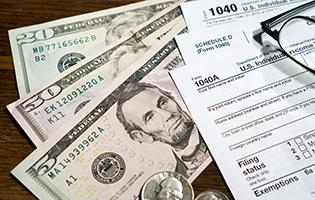
If the just-completed legislative sessions tell us anything about where we stand right now, it’s that Louisiana’s fiscal future is anything but certain. On the downside, that’s not where CABL or a lot of others wanted us to be right now, but looking at the glass half full we still have time to figure things out. When dealing with sticky issues at the Legislature, sometimes that’s about as good as it gets.
But this much we do know: 1) Lawmakers passed a budget that as of today seems to be balanced, 2) there is still a fiscal cliff looming next year when temporary taxes are set to expire and a budget gap of something over a billion dollars will have to be addressed and, 3) there’s no plan for how to deal with any of it.
That’s the point we need to focus on. Many legislators, to their credit, came to the Capitol this year with bills that could have addressed our fiscal issues, but most didn’t really have a plan. Those that did never got any real traction. The governor had a plan, but he was bringing forward a new and highly controversial business tax measure on relatively short notice and it never stood a chance.
So we wait for another day.
But maybe that’s okay. One thing this year’s legislative sessions has done is educate lawmakers much more on the budget, where cuts can be made, and the various options out there for replacing expiring revenues.
It seems there is some agreement that Louisiana will have to replace most of the revenues that are going away. Most, if not all, legislators would probably agree that cutting more than a billion dollars out of the state budget represents a bridge too far. But many will also be looking to balance a full replacement of the temporary taxes with permanent cuts to the budget.
And that’s where the rub will be next time. What we need is for those who want cuts to come to the table next time with some specific ideas to permanently reduce the size of government in a way that a majority of the Legislature will support. Just saying we’re going to reduce spending by “X” amount to colleges, hospitals, children’s services, and prisons doesn’t cut it any more.
And those on the replacement side need to come up with proposals that are revenue neutral and take the lessons learned from this session and put them together into a real “plan.” But it shouldn’t be a knee-jerk effort just to replace revenues, but a thoughtful approach that improves our tax policy, provides a reliable source of revenue, doesn’t pick on any one group of taxpayers, and makes Louisiana more competitive.
And, yes, that can actually be done.
There’s a quote that says “procrastination makes easy things hard, and hard things harder.” Certainly, we have procrastinated and after this year’s sessions resolving our fiscal problems seems harder than ever.
But hard doesn’t mean impossible. People and institutions rise to challenges all the time. But it takes leadership and it takes resolve. It takes the conscious decision that waiting for the state and its institutions to “crash and burn” before fixing the problem is not an option. And while we can look at the regular session as a failure, it would be nice to think of it as the final exercise before we achieve success.
Louisiana has been in this funk far too long and it’s getting us nowhere. It’s past time to address our fiscal issues, reposition our state for a better future, and move on.
